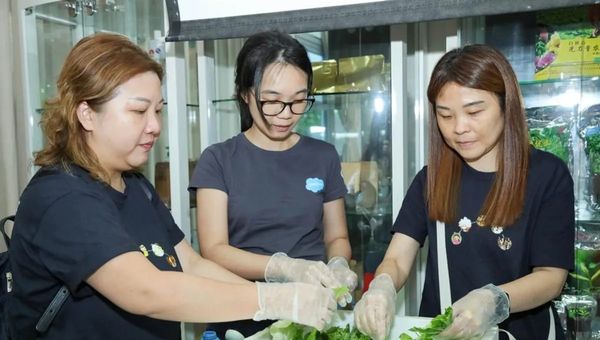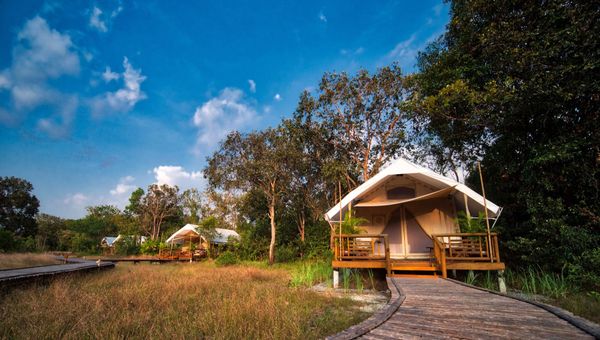How can travel agents drive climate awareness?
Masaru Takayama, chair of Japan Alliance of Responsible Travel Agencies, offers advice for driving sustainability:
Get educated: Understand sustainable tourism
criteria like the Global Sustainable Tourism Council standards. At trade
shows, look out and learn from responsible companies. With the SDGs,
your future clients will be sustainability-conscious. How will you sell
if you don’t speak that language?
Respect local guidelines: Follow dos and don’ts of
each country, but travel agents must first educate themselves and change
behaviours to convince clients. A good destination to visit is a good
place to live – treat it like visiting someone’s backyard.
Promote secondary destinations: Add at least one
lesser-known or visited destination, particularly for the Asian
travellers who often hit major attractions. Japan, for instance, has
much more to offer than sushi and anime.
Low-carbon transportation: Redesign tours promoting trains, public transit and energy-efficient lodging to reduce environmental impact.
Travel has never been hotter, literally.
With each passing year, extreme weather events are increasingly
disrupting travel around the world. In 2023, which was supposedly a year
of revenge travel, a barrage of disasters -from Europe’s extreme summer
heat and wildfires in Canada to flooding in Australia and New Zealand –
devastated global destinations. Most recently, a brutal heatwave
scorched Southeast Asia with temperatures soaring into the high 30s and
triggering health warnings around the region.
“Climate change is impacting our destinations in a way that affects
both local life and tourism,” said Hamish Keith, CEO of Exo Travel.
“We’ve observed more frequent and intense weather events, such as floods
and heatwaves, sometimes leading to temporary closures or changes in
tour schedules.”
In Japan, unpredictable snowfall at ski resorts, coral bleaching and
earlier cherry blossom seasons are disrupting travel patterns,
complicating timing for visitors, said Masaru Takayama, president,
Spirit of Japan Travel.
Sustainable travel proponent (from left): Yaana Ventures’ Willem Niemeijer, Exo Travel’s Hamish Keith, Tribe Tours’ Yock Song Law and Intrepid Travel’s Mike Steward.
As heatwaves stretch, tour operators and DMCs in Asia are adjusting
their programmes and itineraries to cope with soaring day-time
temperatures. Common tactics including starting outdoor and active
tours, such as cycling, trekking, earlier in the day to avoid peak heat
and planning urban walks with ample shade and rest time.
Willem Niemeijer, CEO at Yaana Ventures and founder of Khiri Travel,
said: “During really hot weather, we recommend our guests to bring down
the pace in itineraries, start a little earlier and, if possible, stay
indoors during midday and enjoy the hotel pool a little more. Certain
activities, say diving, are much less affected by temperatures.”
So far, climate change’s biggest impacts have been on infrastructure,
observed Exo Travel’s CEO Hamish Keith. “For example, the Topas
Riverside Lodge in Sapa, Vietnam suffered extensive damage from flash
flooding in late 2023, leading to its permanent closure. This unexpected
event necessitated the relocation of our tours to alternative
properties.
“Similarly, in northern Laos the Muang La Lodge was irreparably
damaged following a dam breach. As a result, we had to reroute one of
our most popular North Laos journeys to Nam Kat Yor Lapa, located
approximately an hour away. We’ve experienced similar situations in
Indonesia that is very prone to climate change and even more recently in
Japan,” said Keith, whose company operations span across 11 countries
in the region.
Overall, industry players feel that Southeast Asia is in a relatively
fortunate position, as climate impacts, to date, had not been too
extreme. Travel customers, generally, haven’t expressed concerns about
climate change, although that differs from market to market.
Thanks to its long-renowned standing as a responsible adventure
travel company, Intrepid’s customers – of which the majority hail from
Europe, North America and Australia – are already “climate aware” and
actively seek out sustainable travel experiences, noted Mike Steward,
Thailand and Laos general manager at Intrepid Travel.
“Clients ask our guides more detailed questions about sustainability
now,” he shared. Having been a carbon-neutral business in 2010 and
biggest B Corp in the tourism sector since 2018, Intrepid is now working
towards science-based emission cut targets.
In Singapore, Tribe Tours is seeing rising interest in sustainability
experiences. Travellers are no longer contend with just visiting and
exploring major attractions in the city but are looking to incorporate
knowledge learning within their tours, according Yock Song Law, head of
partnerships & business developments at Tribe Tours. Some are even
seeking out unique sustainability experiences in Singapore, e.g.
vertical farms, to understand the country’s strategies in food
resilience or sustainable architecture.

Tribe Tours rolls out more sustainability experiences like “Zero to Hero” – dubbed the “dirtiest tour” – where guests forage vegetable waste and ugly food at local wet markets for a unique cultural take. Photo Credit: Tribe Tours
Tribe Tours is hence rolling out more experiences of such nature.
“Zero to Hero”, which Law dubs the “dirtiest tour”, takes guests into
the heartlands and visit local wet markets where they could get a unique
take on local culture while foraging for vegetable waste and ugly food.
During the tour, they will be walked through the fundamentals of
Singapore’s public housing, from food waste composting at wet markets to
solar panels on rooftops.
At present, however, sustainability appears to be a lower priority
for leisure travellers than factors like pricing, said Yock Song, who
also organises events for corporate and educational groups. “Business
events will drive sustainability, whereas decisions in the leisure
segment is less inclined to be driven by sustainability and rather about
pricing.”
To reduce environmental impact, DMCs and tour operators are
encouraging slower travel among customers, spending longer and doing
more in a destination. This way, travellers will spend longer and
incorporate more activities within a destination, incurring a smaller
carbon footprint than packing multi cities within an itinerary.
Using trains, bikes and public transport reduces environmental impact
and also provides a uniquely local experience. Furthermore, DMCs are
also incorporating low-carbon transport options such as electric bikes,
electric tuk-tuks and solar-powered boats into their tours.
“Fly less domestically or regionally, and stay longer in locations.
You’ll enjoy learning more about these communities, beyond ticking off
the highlights. Take the train more often, plant trees or otherwise
support environmental projects while traveling,” Khiri Travel’s Nimeijer
suggested.

A portion of traveller spending at Cardamom Tented Camp aids in preserving 18,000 hectares of lowland rainforest. Photo Credit: Yaana Ventures
On the ground, Yaana Ventures is also actively involved in
reforestation projects on the ground. The group’s lodges in Chiang Rai
and Khao Sok have reforestation projects on their properties, while
Cardamom Tented Camp helps to keep 18,000 hectares of low land
rainforest standing. “It’s practical environmental and pollution busting
programmes we feel we, and other tourism companies, can play a
practical, hands-on role,” stated Nijiemer.
Exo Travel is now working with Path Net Zero to measure its carbon
footprint and Ecollective to calculate the environmental impact of each
of our experiences. This approach allows us to attribute emissions to
specific activities based on their characteristics and scale. “This
data-driven approach not only helps us quantify emissions but also
informs strategic decisions aimed at minimising our carbon footprint
while maximising the sustainability of our offerings,” said Keith.
“We have also partnered with Hotel Resilient to create an online
platform that ranks and reviews hotels based on a range of
sustainability metrics. The organisation summarises the key indicators
of the property’s commitment to sustainability and ranks it based on a
series of criteria. That way, we aim to promote responsible properties
taking action to reduce their carbon footprint and ultimately resilience
to climate change.”
“Sustainability is becoming an expectation for travellers nowadays,
rather than for a certain segment,” said Stewart. However, he also
observes a greater eagerness among B2B partners in sustainability, with
partners asking about purposes and supply chains. This can only be a
positive thing. As climate awareness grows, industry players are also
spurred to keep up their green actions. “I believe this will force a
change in the travel chain.”
Ultimately, collective action as an industry needed.
“Tourism is at the forefront. If we don’t look at it, tourism will be
dramatically impacted,” said Steward. “We need to work and collaborate
for change to happen. We need to move faster.”
This article is part of Travel Weekly Asia’s April-June 2024 issue.Click hereto read more from that issue.

